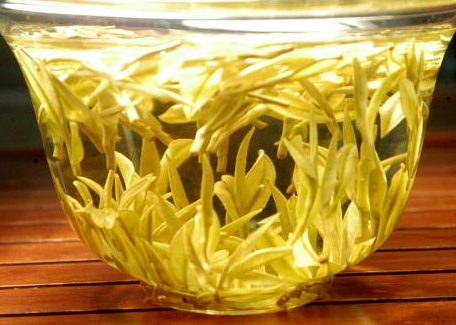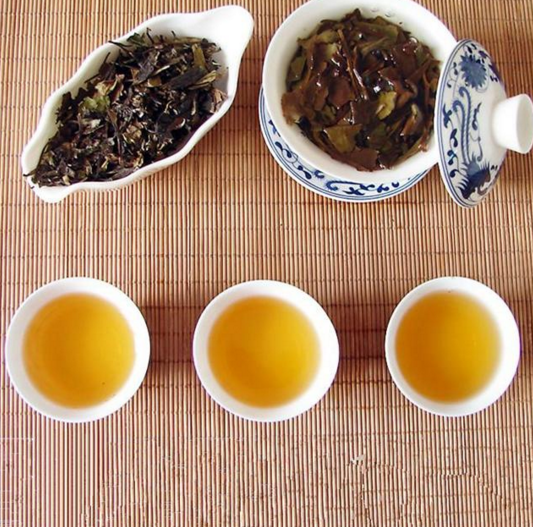White Tea:
White tea is a lightly fermented tea, made from buds and leaves with abundant white hairs, processed through a unique method without rolling or frying. The fresh leaves require 'three whites,' meaning the tender buds and two young leaves must show visible white hairs. The finished tea is covered in fine hairs, silver-white in color, hence the name white tea. Depending on the tea plant variety and picking standards, white tea is categorized into bud tea (e.g., Baihao Yinzhen) and leaf tea (e.g., Gongmei). Bud tea uses single buds, while leaf tea uses a complete bud with one or two leaves covered in dense white hairs (e.g., White Peony, best from the first spring harvest).

White tea is characterized by intact buds or naturally shaped leaves, covered in fine hairs, with a fresh aroma, clear greenish liquor, and a mild, sweet aftertaste.
Health Benefits of White Tea:
White tea offers 'three resistances' (anti-radiation, antioxidant, anti-tumor) and 'three reductions' (lowering blood pressure, lipids, and blood sugar), along with benefits for the heart, liver, eyes, spirit, energy, and complexion.
The production of white tea is unique and natural, involving no frying or rolling. Unlike green tea, which prevents polyphenol oxidation, or black tea, which promotes oxidation, white tea is simply spread thinly on bamboo trays under weak sunlight or in well-ventilated rooms to wither naturally. When 70-80% dry, it is gently baked over low heat. This minimal processing preserves most of the tea's nutrients. Locals have long used white tea to reduce inflammation, detoxify, relieve heat, dispel dampness, and treat ailments like toothaches, fevers, and measles.

Effects of White Tea:
1. Can Treat Diabetes
Diabetes results from insufficient insulin and excessive blood sugar, disrupting metabolism. Recent studies highlight white tea's potential in diabetes treatment. Japanese and Chinese researchers found it significantly improves chronic diabetes, with a 70% efficacy rate in clinical trials. Long-term consumption may even cure high blood sugar, as polyphenols and polysaccharides in white tea regulate glucose metabolism and lower blood sugar levels.
2. Prevents Cerebrovascular Diseases
Cerebrovascular diseases, like strokes, arise from high blood viscosity and clotting. White tea's anti-clotting and fibrinolytic properties improve circulation without side effects, reducing thrombosis risk. Studies confirm it lowers blood viscosity, enhancing flow and preventing clots.
3. Lowers Blood Pressure
Rich in polyphenols, vitamin C, and P, white tea enhances vascular elasticity, reduces cholesterol, and promotes diuresis, indirectly lowering blood pressure. Its theophylline content also dilates blood vessels, easing blood flow.
4. Boosts Immunity and Fights Viruses
Recent research shows white tea extract inhibits bacteria causing infections, pneumonia, and cavities. It also combats fungi, making it a potent natural remedy. Studies suggest it may even defend against deadly viruses, validating traditional uses.